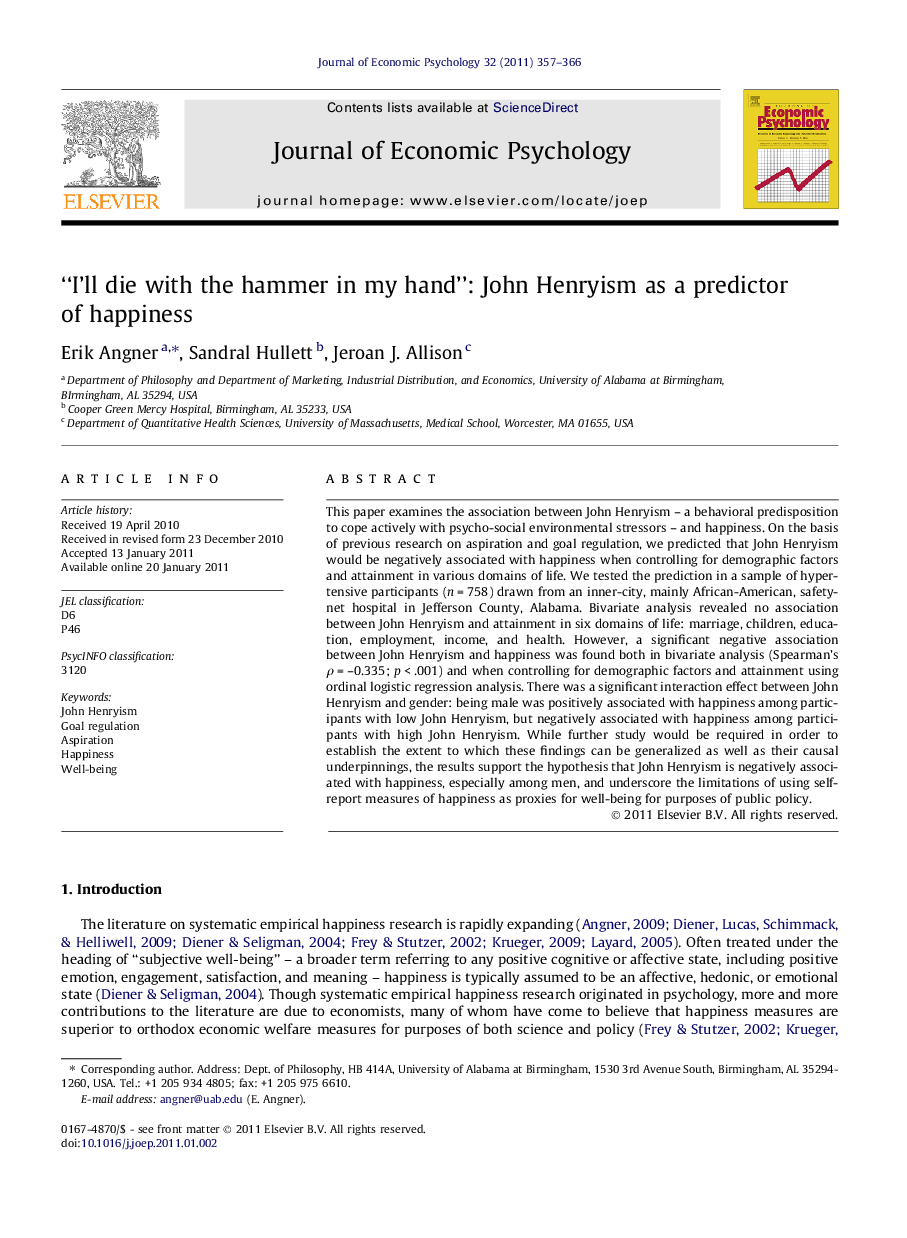| Article ID | Journal | Published Year | Pages | File Type |
|---|---|---|---|---|
| 885230 | Journal of Economic Psychology | 2011 | 10 Pages |
This paper examines the association between John Henryism – a behavioral predisposition to cope actively with psycho-social environmental stressors – and happiness. On the basis of previous research on aspiration and goal regulation, we predicted that John Henryism would be negatively associated with happiness when controlling for demographic factors and attainment in various domains of life. We tested the prediction in a sample of hypertensive participants (n = 758) drawn from an inner-city, mainly African-American, safety-net hospital in Jefferson County, Alabama. Bivariate analysis revealed no association between John Henryism and attainment in six domains of life: marriage, children, education, employment, income, and health. However, a significant negative association between John Henryism and happiness was found both in bivariate analysis (Spearman’s ρ = –0.335; p < .001) and when controlling for demographic factors and attainment using ordinal logistic regression analysis. There was a significant interaction effect between John Henryism and gender: being male was positively associated with happiness among participants with low John Henryism, but negatively associated with happiness among participants with high John Henryism. While further study would be required in order to establish the extent to which these findings can be generalized as well as their causal underpinnings, the results support the hypothesis that John Henryism is negatively associated with happiness, especially among men, and underscore the limitations of using self-report measures of happiness as proxies for well-being for purposes of public policy.
